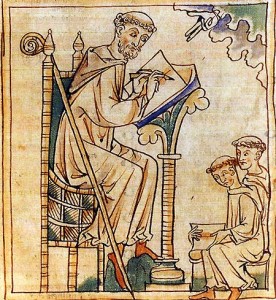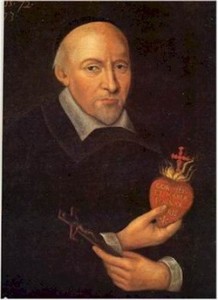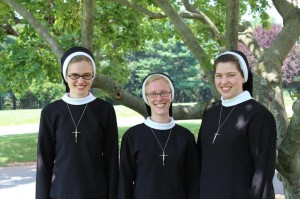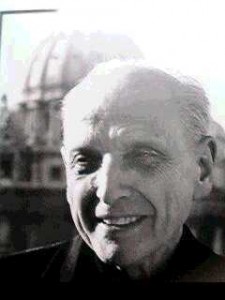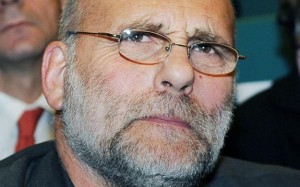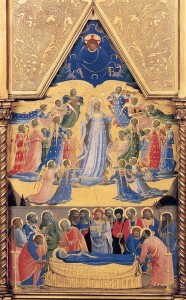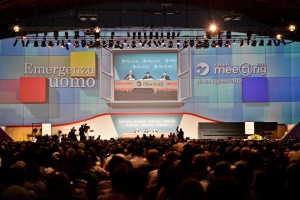 The 34th Meeting for the Friendship Among the Peoples opened in Rimini, Italy on 18 August. The for this year is “The Human Person: a State of Emergency.”
The 34th Meeting for the Friendship Among the Peoples opened in Rimini, Italy on 18 August. The for this year is “The Human Person: a State of Emergency.”
The Holy Father through the Secretary of State to His Holiness, Tarcisio Card. Bertone, SDB, sent a letter to the bishop of Rimini, the Most Reverend Francesco Lambiasi.
The Meeting is a work of members of Communion and Liberation and it draws around 800K, from Italy and many countries beyond. In past years the Meeting has welcomed the brilliant contributions, among many, of Blessed John Paul II, Blessed Teresa of Calcutta, the Servant of God Father Luigi Giussani, Benedict XVI (when he was the CDF Prefect), Ennio Morricone, David Rosen, Tony Blair and Carl A. Anderson.
The Program for this year…
Here’s Pope Francis’ message…
Most Reverend Excellency, I would like to address with joy the Holy Father Francis’ cordial greeting to Your Excellency, to the organizers and to all the participants in the Meeting for the Friendship Among the Peoples that is now being held for the 34th time. The theme chosen – The Human Person: a State of Emergency – captures the great urgency of evangelization, which the Holy Father following His predecessors, has underlined many times and which caused in Him deep considerations that now I refer here below.
In his first Encyclical, Redemptor hominis (cfr. n. 14), the beatified John Paul II wrote that “man is the way for the Church.”
This truth is still valid, especially in this period in which the Church is called to rediscover its own mission, focusing on the essential and searching for new paths for evangelization, in a more and more globalized and virtual world and in a society more and more deprived of stable reference points.
Man remains a mystery, irreducible to whatever image society creates and the power of the world tries to impose to him. The man is a mystery of freedom and grace, of poverty and grandness. But what does it mean: “Man is the way for the Church?” And especially, what does it mean for us today to walk through this way?
Man is the way for the Church because he is the road that God Himself walks on. From the dawn of humanity, after the Original Sin, God has begun to search for man. “Where are you?” He asks Adam, who is hiding in the garden (Gen 3, 9). This question, that appears at the beginning of the Book of Genesis, and that doesn’t stop resonating throughout the entire Bible and in every moment of the history that God, throughout the millennia, created with humanity, reaches its highest expression through the incarnation of the Son. In his commentary on John’s Gospel, Saint Augustine affirms that: “Remaining with the Father, [the Son] was truth and life; taking our flesh, He became the way” (I, 34, 9). Therefore Jesus Christ is “the chief way for the Church,” but since “He is also the way for each man”, man becomes “the prime and fundamental way for the Church.” (Redemptor hominis, 13-14)
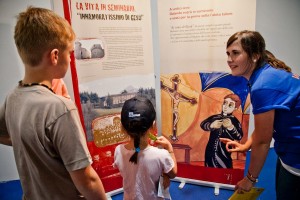 Jesus affirms “I am the gate” (John 10,7): that means, I am the access portal for every man and everything. Without passing through Christ, without concentrating on Him the gaze of our heart and mind, we would not understand anything of the mystery of the human person. Therefore, almost inadvertently, we will be forced to acquire from the world our criteria of judgment and action, and every time we get closer to our brothers in humanity, we will be like those “thieves and robbers” that Jesus talks about in the Gospel (John 10,8). Even the world is in fact, in its own way, interested in man. The economic, political and social power needs man to maintain and inflate itself. And for this reason, the power frequently tries to manipulate the masses, it creates desires to eliminate the most precious thing man possesses: his relationship with God. The power fears those men that have a relationship with God because this relationship sets them free.
Jesus affirms “I am the gate” (John 10,7): that means, I am the access portal for every man and everything. Without passing through Christ, without concentrating on Him the gaze of our heart and mind, we would not understand anything of the mystery of the human person. Therefore, almost inadvertently, we will be forced to acquire from the world our criteria of judgment and action, and every time we get closer to our brothers in humanity, we will be like those “thieves and robbers” that Jesus talks about in the Gospel (John 10,8). Even the world is in fact, in its own way, interested in man. The economic, political and social power needs man to maintain and inflate itself. And for this reason, the power frequently tries to manipulate the masses, it creates desires to eliminate the most precious thing man possesses: his relationship with God. The power fears those men that have a relationship with God because this relationship sets them free.
This is the state of emergency of the human person the Meeting for the Friendship Among the Peoples has chosen as its main theme this year: the urgency to give back man to himself, at his highest dignity, to his own uniqueness and preciousness of each human existence from his conception to the natural end of life.
It is necessary to take into consideration again the sacredness of man and, at the same time, to strongly state that only in the relationship with God, that is in the discovery and adhesion of one’s own vocation, that man can achieve his true stature.
The Church to which Christ entrusted His Word and Sacraments takes care of the greatest hopes, the most authentic possibility of fulfillment for man, in any place and any time. What a big responsibility we have! Do not keep just for us this precious treasure that everybody, aware or not, is looking for himself or herself.
Let’s meet with courage all the men and women of our time, children and old people, “wise” people and those without education, young and families. Let’s meet everybody and do not wait the others to look for us! Let’s imitate in this our Divine Master, who left His Heaven to become man and to be closed to everybody. Let’s bring the perfume of Christ’s love (2 Cor 2,15) not only in churches and parishes, but in every environment. In the schools, in the universities, in workplaces, in hospitals, in prisons; but also in the city squares, in the streets, in the sport centers, in places where people gather. Don’t be greedy in giving what we have gained without any merit! Let’s not be afraid to announce Christ in favorable or unfavorable occasions (2 Tm 4,2) with respect and frankness. This is the Church’s task, this is every Christian’s task: to serve men and look for them even in the social and the most inner spiritualist corners.
The condition of credibility of the Church in its mission of mother and teacher is its fidelity in Christ. The openness towards the world is accompanied and, in a certain sense, is possible thanks to the obedience to the truth of which the Church itself cannot dispose. “The Human Person: a State of Emergency” thus signifies the urgency to go back to Christ, to learn from Him the truth about ourselves and the world and with Him and in Him to go and meet every man, especially the poorest, for which Jesus has always manifested His predilection. And poverty is not only material. There is a spiritual poverty that grips every contemporary men. We are poor in love, thirsty for truth and justice, beggars of God, as wisely the servant of God Father Luigi Giussani has always underlined. The greatest poverty is in fact the lack of Christ, and until we do not bring Jesus to people, we would have done too little for them.
Your Excellency, I hope these brief thoughts may help those who are taking part in the Meeting. His Holiness Pope Francis assures everybody His closeness in prayer and His affection. He hopes that the meetings of these days may light in the hearts of all the participants a fire that nourishes and sustains their testimony of the Gospel in the world. And we send a particular Apostolic Benediction to You, to all the responsible people, the organizers of this manifestation, as well as those who are present.
